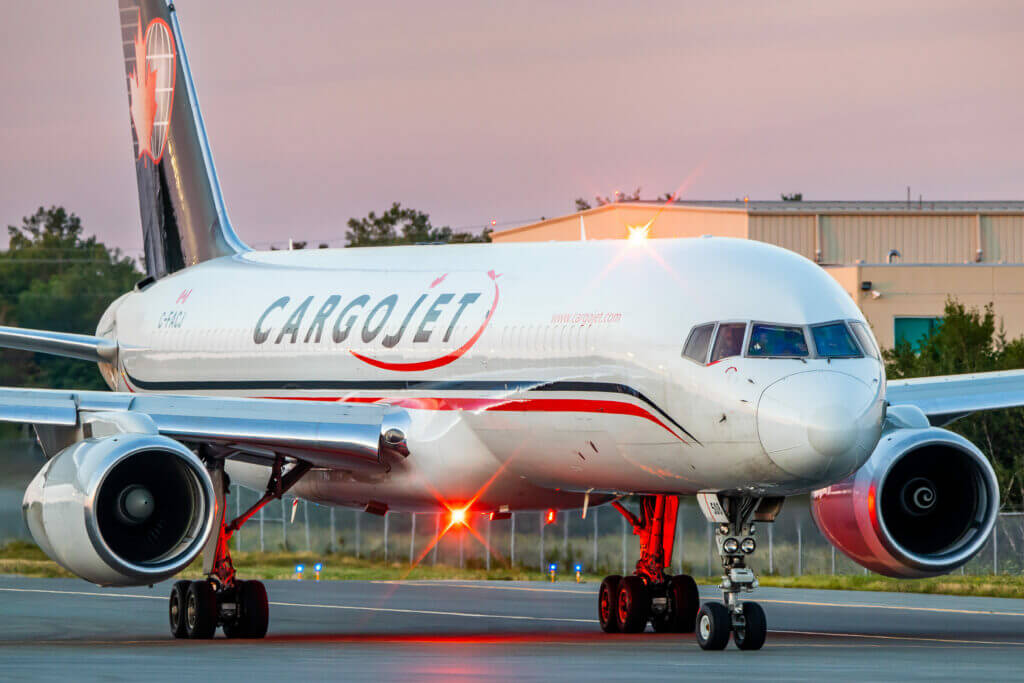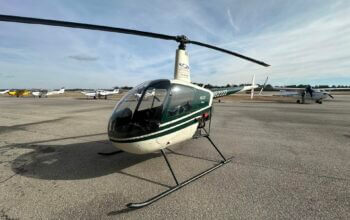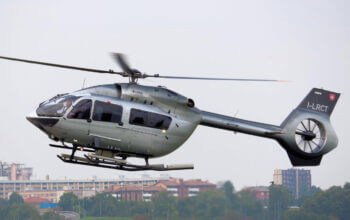Estimated reading time 7 minutes, 26 seconds.
Cargojet Inc. is adjusting to reduced demand for its time-sensitive delivery services, part of a global trend of weakening volumes for air cargo.
The Mississauga-based company had $979.9 million in revenue during its stellar financial performance last year, compared with $757.8 million in 2021. Cargojet, which operates a fleet of 36 aircraft according to the Canadian Civil Aircraft Register, saw its profit rise nearly 14 percent to $190.6 million last year. For 2023, however, industry analysts are forecasting that Cargojet and other companies in the air cargo sector will be encountering economic downdrafts.
Cargojet chief executive officer Ajay Virmani said the company’s employees showed resilience in managing rapid growth driven by the Covid-19 pandemic.

“We are equally capable of managing the down cycle with similar rigor and discipline,” said Virmani during a March conference call with industry analysts. “One of the biggest lessons we have always learned in our business is: It’s never as rosy as it seems, and it’s never as gloomy as it appears.”
On the plus side, Cargojet announced in November that it extended its air cargo services pact with United Parcel Service Canada Ltd. That agreement had been slated to end on July 1, 2025, but will now expire on Dec. 31, 2030.
Cargojet then announced in January that it extended a master services agreement with Canada Post and Purolator until Sept. 30, 2029. The previous arrangement would have expired on March 31, 2025.
On the negative side for Cargojet, the company already saw signs of shifting spending patterns in the fourth quarter of 2022 by consumers, who have been tightening their belts amid inflationary pressures in general for goods and services.
Virmani said as consumers gradually changed their behaviors with the steady reopening of the economy, spending shifted away from e-commerce and into areas such as the air passenger market, resorts, and restaurants.
“People bought less in December on e-commerce because people were too busy spending their disposable income on travel,” the entrepreneur said.
Virmani is the visionary behind Cargojet, creating the overnight delivery company in 2002 and building it up from the remains of now-defunct Canada 3000 Cargo.
Cargojet was planning to take delivery of eight Boeing 777s (passenger to freighter) over the next several years to broaden the international reach of its freighter operations, but has cautiously opted to utilize only four of the 777s instead.
“While maintaining the conversion slots for an additional four B777 aircraft, the company has cancelled the purchase of one feedstock aircraft and disclosed the sale of two B777 feedstock aircraft for US$53.5 million, equal to their carrying value,” said ATB Capital Markets Inc. analyst Chris Murray in a research note. A fourth Boeing 777 aircraft could be eventually sold.
Murray added that Cargojet posted weaker-than-expected financial results in last year’s fourth quarter, reflecting softer volumes on its domestic network in Canada.
Scotia Capital Inc. analyst Konark Gupta said that by 2025, Cargojet’s freighter fleet is set to gradually grow from the current 36 planes to 47. “The ramp-up will be one year slower and the mix will be less skewed to larger aircraft,” said Gupta in a research note.
Meanwhile in Canada, WestJet Cargo announced in March that Transport Canada has officially certified the airline’s four Boeing 737-800 converted freighters — almost one year later than WestJet had originally expected. Three of the freighters are set to be deployed starting in late April, with the fourth to follow later this year. The aircraft are to focus on the North American market initially.
Uncertainty Ahead
Globally, the air cargo market started 2023 on a difficult trajectory, according to the International Air Transport Association (IATA).
“The challenging economic environment for air cargo is expected to persist this year,” said IATA in its market analysis in March. “High inflation will continue curtailing purchasing power, dampening consumption and global trade.”
Management consulting firm Deloitte Canada said the Canadian air cargo market isn’t immune to global issues. In a report last August, Deloitte Canada said the Canadian aviation industry needs to find new ways to cooperate to take advantage of the long-term potential of air cargo.
“Cargo is shipped both in dedicated freighters and in the bellies of passenger aircraft, on both scheduled routes and unscheduled flights,” said the report. “Airlines, airports, cargo handlers, and logistics firms will need to ensure they have both the capacity and the services.”
Last year, industry-wide air cargo declined eight percent globally when compared with the busy period in 2021, and showed a decrease of 1.6 percent from 2019 levels, said IATA, which tracked cargo tonne-kilometers.
E-commerce purchases are forecast to be weaker than originally envisaged for 2023. Still, the next several years appear to hold promise in general for the air cargo sector, said Deloitte Canada’s report.
“The vast bulk of shipments comprise regular freight, both cargo and mail. As the volume of this ‘ordinary’ air freight grows, as is anticipated, demand for cargo capacity will surely rise,” said the report.








